From the pain of birth to the acceptance of life's burdens, the grief of personal loss to alienation from society as a result of being deprived of a father, Pink proceeds to grade school, a period in life in which most, if not everyone, can sympathize with the downtrodden protagonist. Nearly everyone has had a bad experience at school and  Pink is no exception. "The Happiest Days of Our Lives" is a truly acrimonious song with an equally ironic title recalling Pink's Grammar School days that were anything but happy. The brooding bass guitar and Waters taciturn vocals only add to the sinister effect created by the lyrics, as if he is schoolboy whispering in the school yard to his friends concerning what he sees to be the evils of the system. The lyrics are straightforward, telling about those "certain teachers" who would stop at nothing in order to break the children of their individuality, thus forcing them into a voiceless, faceless mold of "productive citizens" (Waters, DVD commentary). However, one must be careful not to take the song as a blanket statement of all educational systems. As with any institution there are "good" and "bad" members, those who truly care about what they are doing and those who take out their aggressions on the innocent. Waters commented in an interview that this song refers to those bad teachers who continually put their students down, never encourage or motivate them, and simply try to "crush them into the right shape, so that they would go to university and 'do well'" (Waters, DVD commentary). Yet for all the injustice delivered upon these unsuspecting children, the second half of the song finds the narrator in a sort of karmic bliss as he recounts the abuse these very same teachers face in their personal lives. While this is a perfect example of karma, of reaping what you sow, it is also another prime illustration of the theme of cycles in "the Wall." The teacher punishes the children because he is unfulfilled personally and punished by his wife in one way or another. Although it is great to see the teacher getting what he deserves, this uninterrupted cycle is just as disastrous as any other encountered in the album. One must keep in mind that the teacher is not inherently evil
Pink is no exception. "The Happiest Days of Our Lives" is a truly acrimonious song with an equally ironic title recalling Pink's Grammar School days that were anything but happy. The brooding bass guitar and Waters taciturn vocals only add to the sinister effect created by the lyrics, as if he is schoolboy whispering in the school yard to his friends concerning what he sees to be the evils of the system. The lyrics are straightforward, telling about those "certain teachers" who would stop at nothing in order to break the children of their individuality, thus forcing them into a voiceless, faceless mold of "productive citizens" (Waters, DVD commentary). However, one must be careful not to take the song as a blanket statement of all educational systems. As with any institution there are "good" and "bad" members, those who truly care about what they are doing and those who take out their aggressions on the innocent. Waters commented in an interview that this song refers to those bad teachers who continually put their students down, never encourage or motivate them, and simply try to "crush them into the right shape, so that they would go to university and 'do well'" (Waters, DVD commentary). Yet for all the injustice delivered upon these unsuspecting children, the second half of the song finds the narrator in a sort of karmic bliss as he recounts the abuse these very same teachers face in their personal lives. While this is a perfect example of karma, of reaping what you sow, it is also another prime illustration of the theme of cycles in "the Wall." The teacher punishes the children because he is unfulfilled personally and punished by his wife in one way or another. Although it is great to see the teacher getting what he deserves, this uninterrupted cycle is just as disastrous as any other encountered in the album. One must keep in mind that the teacher is not inherently evil  but that he is merely redirecting the pain and emptiness of his own life. Moreover, the torment that he doles out will undoubtedly influence one of the children who will mete that same pain in turn onto the next generation. So while the teacher is responsible for his actions, he is not completely at fault for he is just distributing to the rest of the world the suffering and the burdens that the past and present generations have transferred to him. Like Pink later in life, the teacher has the power to exterminate this vicious and violent cycle yet he is so entrenched behind his own wall that he chooses to defend his position and redirect the pain of life back into the world. Unfortunately, while he is defending his own wall, the teacher inadvertently provides some of the bricks for the walls of his students.
but that he is merely redirecting the pain and emptiness of his own life. Moreover, the torment that he doles out will undoubtedly influence one of the children who will mete that same pain in turn onto the next generation. So while the teacher is responsible for his actions, he is not completely at fault for he is just distributing to the rest of the world the suffering and the burdens that the past and present generations have transferred to him. Like Pink later in life, the teacher has the power to exterminate this vicious and violent cycle yet he is so entrenched behind his own wall that he chooses to defend his position and redirect the pain of life back into the world. Unfortunately, while he is defending his own wall, the teacher inadvertently provides some of the bricks for the walls of his students.
The accompanying movie scenes for this song perfectly highlight Pink Floyd's (and the filmmakers') ability to meld the every-day with a heightened sense of reality, both mentally and emotionally. A perfect example is the sequence of film before the song actually starts when Pink and his two cronies go down to the railroad track to lay bullets on the rails and watch them explode as the passing engine rolls over and ignites the ammunition. First Pink lays a bullet on the rail in a tunnel as a train approaches and then backs himself against the tunnel wall as the locomotive and train cars explode the bullet and pass him by. Whether sparked by the exploding bullet (a leftover from the violence of World War II) or his day at school, Pink imagines both the train cars as being packed with faceless people and his school teacher at the other end of the tunnel yelling for him to "stand still, laddie!" The transition between external reality and Pink's imaginings is so seamless and void of any transitional clues that the viewer (and perhaps Pink himself) is a bit perplexed as to the reality of the horrific train procession. The effect of such blurring between fantasy and reality creates a bond between the viewer and Pink (we experience firsthand what Pink alone has seen and so can feel his confusion) but it also reminds us to stay on our toes, to be wary of accepting the story as an undeviating narrative. What appears to be "real" on the screen may be the most fantastical conjuring of Pink's splintering mind. While the hallucinatory aspect of this example is fairly obvious, other instances further in the film are far less discernible and if taken as reality will no doubt throw the viewer into a state of confusion similar to Pink's own mind. This film segment is merely a stepping stone, in a sense; it is something that reminds us as the viewer that not everything we will see is real and that in order to make sense of the story, we must be able to separate the elements accordingly.
will see is real and that in order to make sense of the story, we must be able to separate the elements accordingly.
Another interesting aspect about this pre-song scene is the blatant parallel between the faceless passengers in the train (presumably school children as evidenced in the next song as well as the brief mask seen on Pink between the passing train cars) and the millions of "faceless" Jews transported to concentration camps during WWII. While I seriously doubt that Waters is suggesting that the plight of school children is just as ominous and grave as the deaths of millions of Jews, I think that he is suggesting that both institutions (certain schools / concentration camps) were machines that sought to repress all "participants" and rob them of their human rights and individuality. With just roughly cut out eyes and mouths, the mask-people are rendered into things rather than people with recognizable human qualities. Fear and hate-based systems operate largely in this way, robbing people of their identities in order to break that people's spirit as well as to turn others against them. By this reading, the school master at the end of the tunnel takes on a greater weight as a Nazi-esque type dictator whose sole intent is to force the teeming masses of youth into a unified mold void of personal identity. And just as the soldiers march into the consuming fog of self-erasure in "the Thin Ice," Pink begins to walk out of the tunnel into the smoke left by the train as the song begins, paralleling his loss of identity with that of the soldiers earlier in the movie. Nor do the war/dictator  allusions end there. Directly following the tunnel scene, the viewer is privy to the faculty lounge of the school where the teachers are preparing for class when the school bell rings. As they stand, each teacher adjusts his or her garments as if straightening a military uniform in preparation for war. They then march out of the room in single file and, in military style, march down the hallway in two columns with Pink's teacher in lead as the "commanding officer," so to speak. A little interesting and often overlooked subtlety is the color scheme of the walls in the hall that the teachers march down. The half white (on top) and red (on bottom) parallel the color scheme of the insignia in Pink's later dictatorial dementia. The symbol, found both on the flags and Pink's armband, depict two hammers set against a backdrop of white (on top) and red (bottom). For those of you with the most recent release of the DVD and VHS versions, check out the spine of the covers to see what I mean or simply fast-forward to "In the Flesh." While the colors of the hall and Pink's insignia later in the movie may simply be coincidence, I think that this occurrence of the white and red subtly foreshadow what is to come by showing part of the cause of Pink's later breakdown. It's also interesting to note that white is generally the symbolic color of innocence and red the color of blood and sin. Mixing the two together, red and white / sin and innocence, the resulting color is none other than Pink.
allusions end there. Directly following the tunnel scene, the viewer is privy to the faculty lounge of the school where the teachers are preparing for class when the school bell rings. As they stand, each teacher adjusts his or her garments as if straightening a military uniform in preparation for war. They then march out of the room in single file and, in military style, march down the hallway in two columns with Pink's teacher in lead as the "commanding officer," so to speak. A little interesting and often overlooked subtlety is the color scheme of the walls in the hall that the teachers march down. The half white (on top) and red (on bottom) parallel the color scheme of the insignia in Pink's later dictatorial dementia. The symbol, found both on the flags and Pink's armband, depict two hammers set against a backdrop of white (on top) and red (bottom). For those of you with the most recent release of the DVD and VHS versions, check out the spine of the covers to see what I mean or simply fast-forward to "In the Flesh." While the colors of the hall and Pink's insignia later in the movie may simply be coincidence, I think that this occurrence of the white and red subtly foreshadow what is to come by showing part of the cause of Pink's later breakdown. It's also interesting to note that white is generally the symbolic color of innocence and red the color of blood and sin. Mixing the two together, red and white / sin and innocence, the resulting color is none other than Pink.
 In the next scene, the teacher discovers Pink writing poems and disciplines him by public ridicule (reading the poem aloud for the class to laugh at) and a quick slap on the hand with a ruler. (Note: the poem the teacher reads is part of a lyric from the song "Money" off of Pink Floyd's "Dark Side of the Moon," possibly foreshadowing Pink's future success as a rock star.) Little time is wasted by Pink's display of individuality and the teacher automatically resumes the rote Geometry lesson, pounding the definitions into the heads of the children by means of constant repetition. This "learning" is very similar to the "hypnopedia" of Aldous Huxley's A Brave New World in which lessons are repeated to sleeping infants by a machine so that, after hearing the lesson countless times in their sleep, the young children will accept the formulas as fact. Such subtle brainwashing, much like the techniques used by Pink's teacher to mold the children into "proper members of society," results in a strictly enforced caste system and shapes the bio-engineered children into the "model" citizens.
In the next scene, the teacher discovers Pink writing poems and disciplines him by public ridicule (reading the poem aloud for the class to laugh at) and a quick slap on the hand with a ruler. (Note: the poem the teacher reads is part of a lyric from the song "Money" off of Pink Floyd's "Dark Side of the Moon," possibly foreshadowing Pink's future success as a rock star.) Little time is wasted by Pink's display of individuality and the teacher automatically resumes the rote Geometry lesson, pounding the definitions into the heads of the children by means of constant repetition. This "learning" is very similar to the "hypnopedia" of Aldous Huxley's A Brave New World in which lessons are repeated to sleeping infants by a machine so that, after hearing the lesson countless times in their sleep, the young children will accept the formulas as fact. Such subtle brainwashing, much like the techniques used by Pink's teacher to mold the children into "proper members of society," results in a strictly enforced caste system and shapes the bio-engineered children into the "model" citizens.
 The exultant joy of Waters voice as he imaginatively recalls the punishments meted on the teachers is reflected in the following scenes showing the teacher eating with his wife who, while not being physically overweight as the lyrics suggest, is certainly a very domineering presence in the teacher's personal life. The room cluttered with pictures and other minutiae of home life, the larger-than-life shadows on the wall, the vibrant blue wall paper and purple light in the window behind the wife; all contribute to the surrealistic, slightly-skewed atmosphere of the scene which causes the viewer to wonder, once again, if we are seeing reality, the imagination of young Pink, or a mixture of both. Whatever conclusion one comes to, the reality or fantasy of the scene is not as important as the previously mentioned idea of the karmic cycle. The punishments the teacher issues to the schoolchildren are equally issued back onto him by his wife (and vice versa) as evidenced by the alternating shots of the teacher swallowing down a piece of hard meat at his wife's command and shots of him spanking a child with a belt.
The exultant joy of Waters voice as he imaginatively recalls the punishments meted on the teachers is reflected in the following scenes showing the teacher eating with his wife who, while not being physically overweight as the lyrics suggest, is certainly a very domineering presence in the teacher's personal life. The room cluttered with pictures and other minutiae of home life, the larger-than-life shadows on the wall, the vibrant blue wall paper and purple light in the window behind the wife; all contribute to the surrealistic, slightly-skewed atmosphere of the scene which causes the viewer to wonder, once again, if we are seeing reality, the imagination of young Pink, or a mixture of both. Whatever conclusion one comes to, the reality or fantasy of the scene is not as important as the previously mentioned idea of the karmic cycle. The punishments the teacher issues to the schoolchildren are equally issued back onto him by his wife (and vice versa) as evidenced by the alternating shots of the teacher swallowing down a piece of hard meat at his wife's command and shots of him spanking a child with a belt.
At the risk of sounding flippant, the teacher is not allowed to continue with his meal without first eating the parts of the meat that he doesn't wish to eat; and so he bellows  at the end of "Brick, Part 2" that "[i]f you don't eat your meat, you can't have any pudding." Because he can't have his metaphorical dessert without first enduring the hardships of life, then he will make sure that the same applies to the next generation. The result is that the vicious cycle of pain and frustration perseveres.
at the end of "Brick, Part 2" that "[i]f you don't eat your meat, you can't have any pudding." Because he can't have his metaphorical dessert without first enduring the hardships of life, then he will make sure that the same applies to the next generation. The result is that the vicious cycle of pain and frustration perseveres.



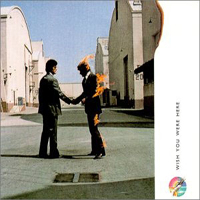
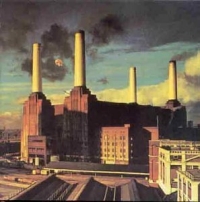

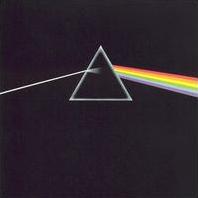
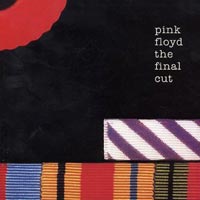
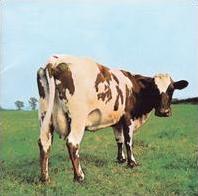
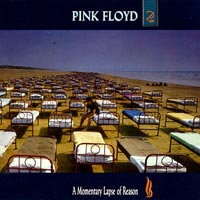
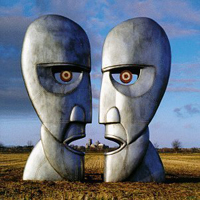
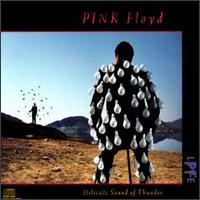




Niciun comentariu:
Trimiteți un comentariu